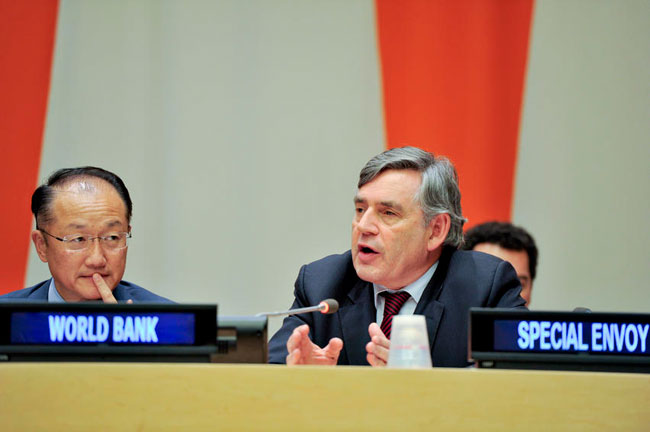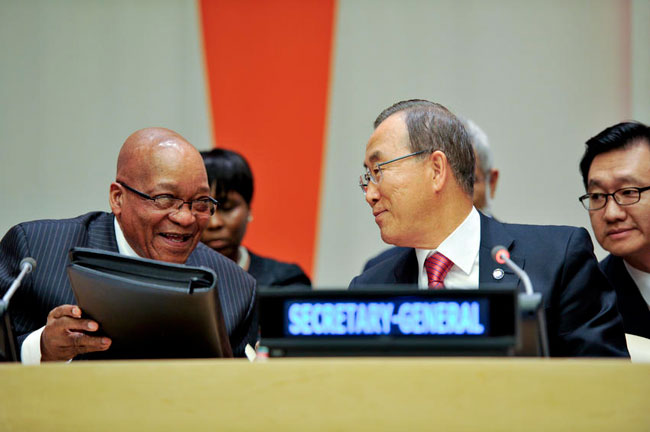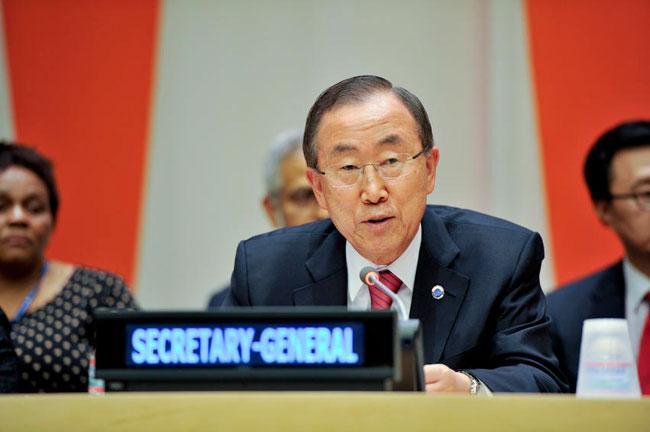Speakers at UN event urge stronger leadership, more financing to ensure education for all
The Global Education First Initiative, launched last September by Secretary-General Ban Ki-moon, aims to put every child in school, improve the quality of learning, and foster global citizenship.
“Our efforts are bearing fruit. Education is regaining its rightful place on the global agenda,” Mr. Ban stated in a video message for the first anniversary of the initiative. “There is new momentum in countries with the greatest needs, such as those affected by conflict, which are home to half of all children lacking education.
“But we must do more – much more,” he stressed. “Educating the poorest and most marginalized children will require bold political leadership and increased financial commitment.”
Noting that aid for education has dropped for the first time in a decade, the Secretary-General emphasized the need to reverse this decline, forge new partnerships, and bring much greater attention to the quality of education.
The initiative has rallied together a broad range of actors and spurred a global movement to put education at the heart of the social, political and development agenda.
“Each of us is playing a key role in the success of this initiative,” noted Irina Bokova, Director-General of the UN Educational, Scientific and Cultural Organization (UNESCO). “Now we need to take this forward, to accelerate progress because we are not on track to meet our promises.”
The numbers remain “staggering,” she said, pointing out that 57 million children remain out of school. In addition, UNESCO estimates that 250 million children are illiterate due to the poor quality of education. Enrolment has increased in many countries but drop out rates remain “unacceptably high.”
Too many young people are graduating without relevant knowledge, without skills, Ms. Bokova told a special event to mark the initiative’s one-year anniversary, and this is happening at a time when aid is decreasing and governments are cutting back on education.
“Let us be clear. Cutting back on education means cutting the most powerful investment a country can make. Reducing aid to education means undermining the sustainability of all development,” she stated.
“To reach those left behind, we need resources to match will and we need stronger cooperation between governments and development partners. We must ensure children not only get to school but get the education they need.”
Today’s event was held on the margins of the annual high-level debate of the General Assembly and moderated by Gordon Brown, the UN Special Envoy for Global Education. It brought together world leaders, heads of major organizations, education activists and representatives of the private sector.
In her remarks, Malala Yousafzai, the Pakistani schoolgirl who was shot by the Taliban for attending classes, called on leaders to focus on education to resolve the world’s problems.
“This is our demand, our request to all the responsible people – that instead of sending weapons, instead of sending tanks to Afghanistan and all these countries that are suffering from terrorism, send books. Instead of sending tanks, send pens. Instead of sending soldiers, send teachers. This is the only way we can fight for education...
“I believe that if we work together, if we are united for the cause of education, we can achieve our goals.”






